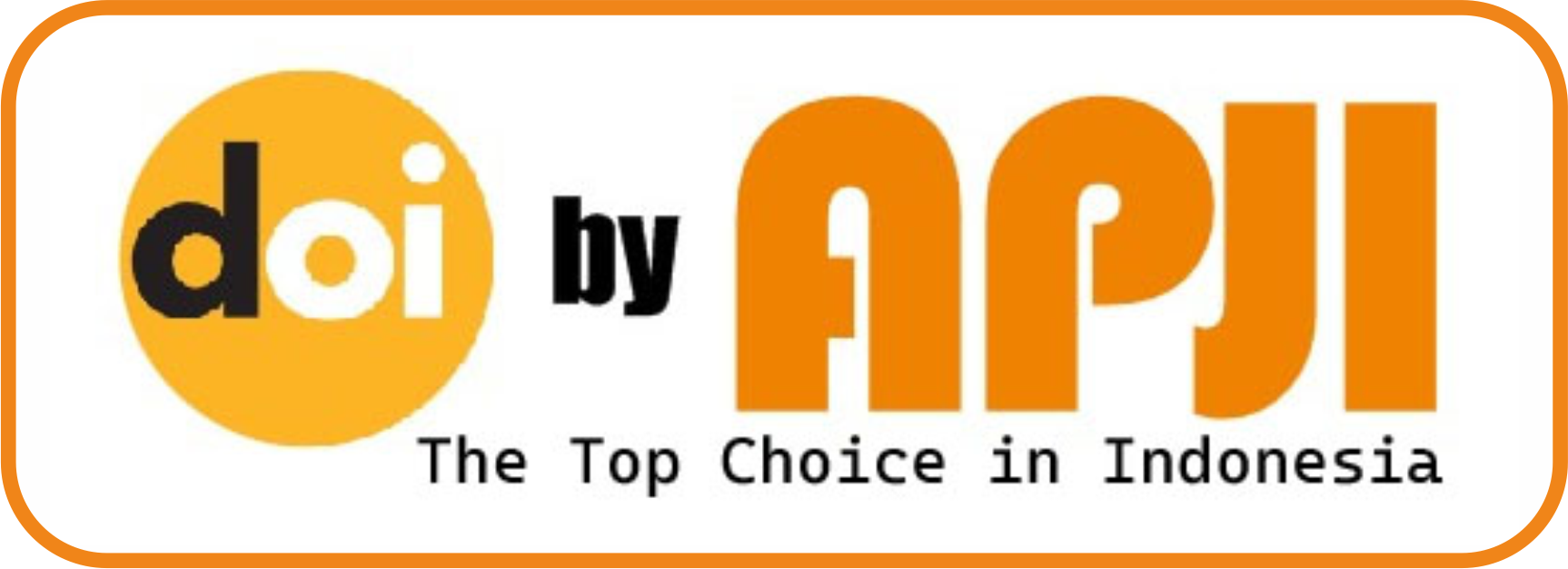PENGARUH LITERASI KEUANGAN DAN GAYA HIDUP HEDONIS TERHADAP INTENSITAS PENGGUNAAN SHOPEE PAYLATER PADA MAHASISWA PENERIMA KIP-K DI INTERNATIONAL WOMEN UNIVERSITY (IWU) KOTA BANDUNG
DOI:
https://doi.org/10.59945/jpnm.v3i2.544Abstract
ABSTRAK
Penelitian ini bertujuan untuk mengetahui pengaruh literasi keuangan dan gaya hidup hedonis terhadap intensitas penggunaan Shopee PayLater pada mahasiswa penerima KIP-K di International Women University (IWU) Kota Bandung. Fenomena penggunaan layanan Buy Now Pay Later (BNPL) yang semakin meningkat di kalangan mahasiswa perlu dikaji lebih mendalam, khususnya pada kelompok penerima bantuan pendidikan yang memiliki karakteristik finansial khusus. Penelitian ini menggunakan metode kuantitatif dengan pendekatan regresi linear berganda. Sampel penelitian berjumlah 100 responden yang dipilih menggunakan teknik purposive sampling dengan kriteria mahasiswa aktif penerima KIP-K yang telah menggunakan layanan Shopee PayLater. Instrumen penelitian berupa kuesioner dengan skala Likert yang telah diuji validitas dan reliabilitasnya. Hasil penelitian menunjukkan bahwa literasi keuangan berpengaruh negatif dan signifikan terhadap intensitas penggunaan Shopee PayLater dengan nilai koefisien -0,448 dan signifikansi (t = -9,068, sig. = 0,000). Sebaliknya, gaya hidup hedonis berpengaruh positif dan signifikan dengan koefisien 0,124 dan signifikansi (t = 2,726, sig. = 0,008). Secara simultan, kedua variabel berpengaruh signifikan terhadap intensitas penggunaan Shopee PayLater dengan nilai F hitung 75,395 (sig. = 0,000) dan koefisien determinasi 60%. Temuan ini mengindikasikan bahwa mahasiswa dengan literasi keuangan tinggi cenderung lebih bijak dalam menggunakan layanan kredit digital, sedangkan mahasiswa dengan gaya hidup hedonis lebih rentan menggunakan PayLater secara berlebihan. Penelitian ini memberikan kontribusi penting bagi pengembangan program edukasi keuangan digital dan kebijakan perlindungan konsumen, khususnya untuk kelompok mahasiswa penerima bantuan pendidikan.
Kata kunci : Gaya hidup hedonis; Literasi keuangan; Mahasiswa KIP-K; Shopee Paylater; Teknologi finansial.
ABSTRACT
This study aims to determine the influence of financial literacy and hedonic lifestyle on the intensity of Shopee PayLater usage among KIP-K recipient students at International Women University (IWU) Bandung City. The phenomenon of increasing Buy Now Pay Later (BNPL) service usage among students needs to be studied more deeply, especially among educational aid recipients who have specific financial characteristics. This research uses a quantitative method with a multiple linear regression approach. The research sample consisted of 100 respondents selected using purposive sampling technique with the criteria of active KIP-K recipient students who had used Shopee PayLater services. The research instrument was a questionnaire with a Likert scale that had been tested for validity and reliability. The results showed that financial literacy had a negative and significant effect on the intensity of Shopee PayLater usage with a coefficient value of -0.448 and significance of (t = -9,068, sig. = 0,000). Conversely, hedonic lifestyle had a positive and significant effect with a coefficient of 0.124 and significance of (t = 2,726, sig. = 0,008). Simultaneously, both variables significantly influenced the intensity of Shopee PayLater usage with an F value of 75.395 (sig. = 0,000) and a coefficient of determination of 60%. These findings indicate that students with high financial literacy tend to be wiser in using digital credit services, while students with hedonic lifestyles are more prone to excessive PayLater usage. This research provides important contributions to the development of digital financial education programs and consumer protection policies, especially for groups of students receiving educational assistance.
Keywords : Hedonic lifestyle; Financial literacy; KIP-K students; Shopee Paylater; Financial technology.
References
Agustina, I., & Pradesa, H. A. 2020. Gender differences in risk taking among entrepreneurs: Case on small medium enterprise in Malang. Warmadewa Management and Business Journal, 2(2), 63–72. https://ejournal.warmadewa.ac.id/index.php/wmbj
Allgood, S., & Walstad, W. B. 2016. The effects of perceived and actual financial literacy on financial behaviors. SSRN. https://doi.org/10.2139/ssrn.2191606
Arinda, D. 2021. Konformitas dengan gaya hidup hedonisme pada mahasiswa. Psikoborneo: Jurnal Ilmiah Psikologi, 9(3), 528–534. https://doi.org/10.30872/psikoborneo
Christin, D., & Huda, A. M. 2023. Motif penggunaan pay later pada wanita karir kota Surabaya. The Commercium, 7(3), 1–7.
Constansje, B., Kurniasari, F., & Abubakar, A. 2023. The effects of financial literacy, self‑efficacy, and financial stress on risky credit behavior of Generation Z: Evidence from Pay Later users. Journal of Entrepreneurship, Business and Economics, 11(1), 180–210. https://scientificia.com/index.php/JEBE/article/view/206
Deloitte. 2023. 2023 Gen Z and Millennial Survey: Waves of change—Acknowledging progress, confronting setbacks. Deloitte Touche Tohmatsu Limited. https://www2.deloitte.com/global/en/pages/about-deloitte/articles/genz-millennialsurvey.html
Dey, D. K., & Srivastava, A. 2017. Impulse buying intentions of young consumers from a hedonic shopping perspective. Journal of Indian Business Research. https://doi.org/10.1108/JIBR-02-2017-0018
Felix, A., Vindis, Y., Yulianto, R. L., Alexander, F., & Sutrisno, J. 2024. Pengaruh Shopee PayLater terhadap perilaku konsumtif mahasiswa: Antara kemudahan dan perangkap. Jurnal Digismantech, 4(2), 33–43. https://doi.org/10.30813/digismantech.v4i2.7605
Haryana, R. D. T. 2024. Perspektif Theory of Planned Behavior dan Financial Literacy pada intensitas penggunaan e-wallet di kalangan generasi millenials. Jurnal E-Bis (Ekonomi-Bisnis), 8(2), 699–710. https://doi.org/10.37339/e-bis.v8i2.1878
Hatimah, H. 2022. Analisis pengelolaan keuangan dan prioritas konsumsi mahasiswa Bidikmisi dan KIP Kuliah Universitas Islam Negeri Mataram angkatan 2019–2022 (Skripsi, Universitas Islam Negeri Mataram).
Irpan. 2023. Pengaruh literasi keuangan terhadap perilaku mahasiswa dalam mengelola keuangan dana beasiswa Kartu Indonesia Pintar (KIP-Kuliah) (Skripsi, Universitas Muhammadiyah Makassar).
Ishlakhatus Sa’idah, S., Wahyuningrum, S. R., Fakhriyani, D. V., & Aisa, A. 2024. Gaya Hidup Hedonis Mahasiswa: Bagaimana Kontribusi Kontrol Diri dan Konformitas Teman Sebaya? Edu Consilium : Jurnal Bimbingan dan Konseling Pendidikan Islam, 5(2), 48–60. https://doi.org/10.19105/ec.v5i2.15056
Josep, L.-M., & Ruiz-Dotras, E. 2022. Are women’s entrepreneurial intentions and motivations influenced by financial skills? International Journal of Gender and Entrepreneurship, 14(1), 69–94. https://doi.org/10.1108/IJGE-01-2021-0017
Jusuf, D. I. (2023). Consumer behavior shifting in the era of disruption in Indonesia. International Journal of Professional Business Review,8(7), 01–15. https://doi.org/10.26668/businessreview/2023.v8i7.2847
Kotler, P., & Armstrong, G. 2021. Principles of marketing (18th ed.). Pearson Education.
Laana, D. L., & Sukri, U. 2022. Life style: Perilaku mahasiswa masa kini dan pengaruh media sosial. Inculco Journal of Christian Education, 2(1), 67–68.
Laili, D. A. N. 2022. Analisis faktor yang memengaruhi perencanaan keuangan pribadi mahasiswa. Jurnal Ilmu Manajemen, 10(2), 531–540.
Liu, H., Liu, W., Yoganathan, V., & Osburg, V.-S. 2021. COVID-19 information overload and Generation Z’s social media discontinuance intention during the pandemic lockdown. Technological Forecasting and Social Change, 166, 120600. https://doi.org/10.1016/j.techfore.2021.120600
Lusardi, A., & Mitchell, O. S. 2017. How ordinary consumers make complex economic decisions: Financial literacy and retirement readiness. Quarterly Journal of Finance, 7(3), 1750008. https://doi.org/10.1142/S2010139217500082
Ninan, N., Roy, J. C., & Cheriyan, N. K. 2020. Influence of social media marketing on the purchase intention of Gen Z. International Journal of Innovative Research and Development, 9(1). https://www.researchgate.net/publication/339164968
Nugrahanti, Y. W., Rita, M. R., Restuti, M. D., & Hadiluwarso, M. A. 2024. The Usage of Paylater Among College Students: The Role of Self‑Control, Hedonistic Conformity, and Family Financial Education. Jurnal Manajemen Bisnis, 15(2), 366–386. https://doi.org/10.18196/mb.v15i2.23456
Potrich, A. C. G., Vieira, K. M., & Mendes-Da-Silva, W. 2016. Development of a financial literacy model for university students. Management Research Review, 39(3), 356–376. https://doi.org/10.1108/MRR-06-2014-0143
Rusli, A. 2017. Analisis penggunaan dana beasiswa berprestasi pada mahasiswa Pendidikan Ekonomi FKIP UNTAN (Skripsi, Universitas Tanjungpura).
Sa’idah, I., Laily, N., Liyana, E., & Aryani, A. 2024. Perilaku konsumtif Gen Z di era digital: Studi kasus di Kabupaten Pamekasan. DA’WA: Jurnal Bimbingan Penyuluhan & Konseling Islam, 4(2), 95–106. https://ejournal.iaimu.ac.id/index.php/dawa/index
Downloads
Published
How to Cite
Issue
Section
License
Copyright (c) 2025 JPNM Jurnal Pustaka Nusantara Multidisiplin

This work is licensed under a Creative Commons Attribution-NonCommercial 4.0 International License.










